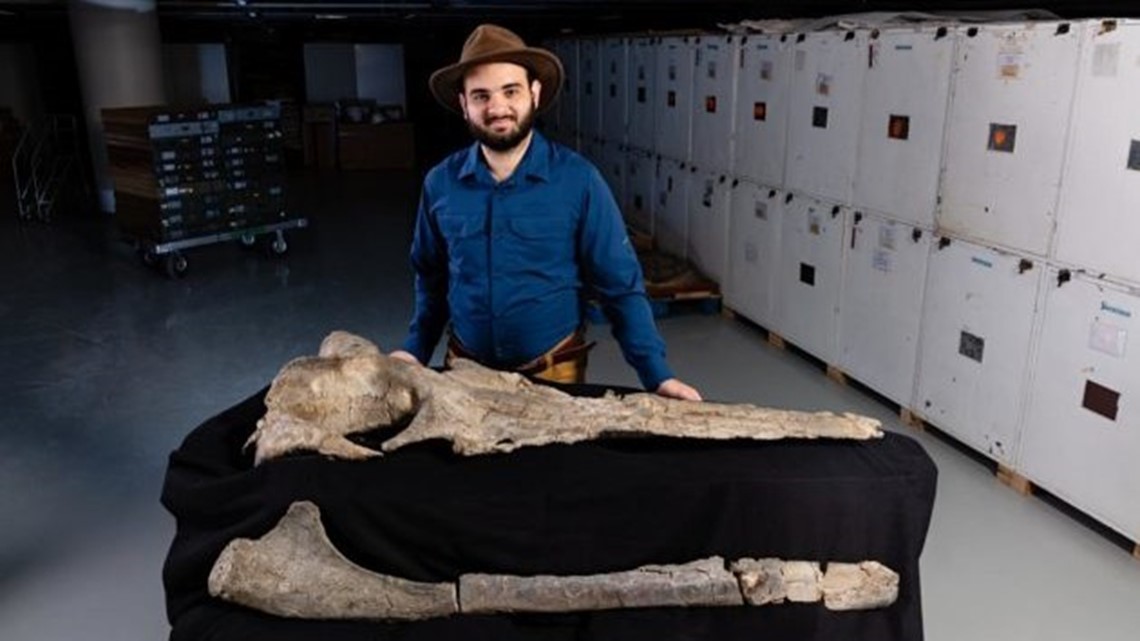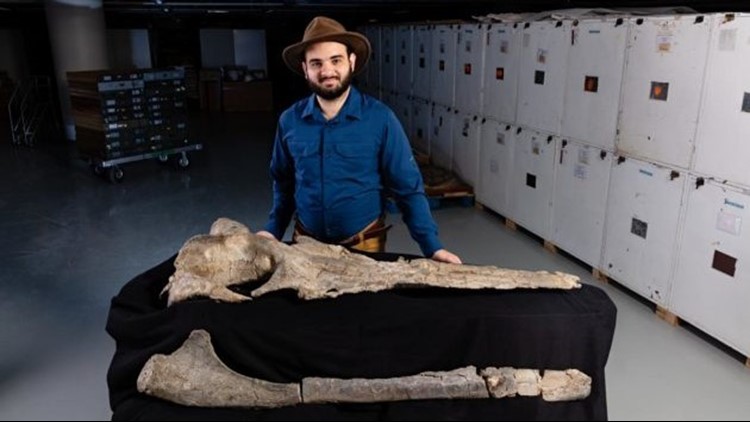A whale that lived 33 million years ago when present-day Oregon was part of the ocean floor has been newly named after a curator at the Burke Museum of Natural History and Culture in Seattle.
And Elizabeth Nesbitt’s whale isn’t your typical cetacean: An analysis of the fossil, published in the Nov. 29 issue of Current Biology, suggests that Maiabalaena nesbittae bridged a gap between species of whales that had teeth and species that have a different mouth-feeding mechanism known as baleen.
“For the first time, we can now pin down the origin of filter-feeding, which is one of the major innovations in whale history,” study co-author Nicholas Pyenson, the National Museum of Natural History’s curator of fossil marine mammals and an affiliate curator at the Burke Museum, said in a news release.
Read more at GeekWire.com.




